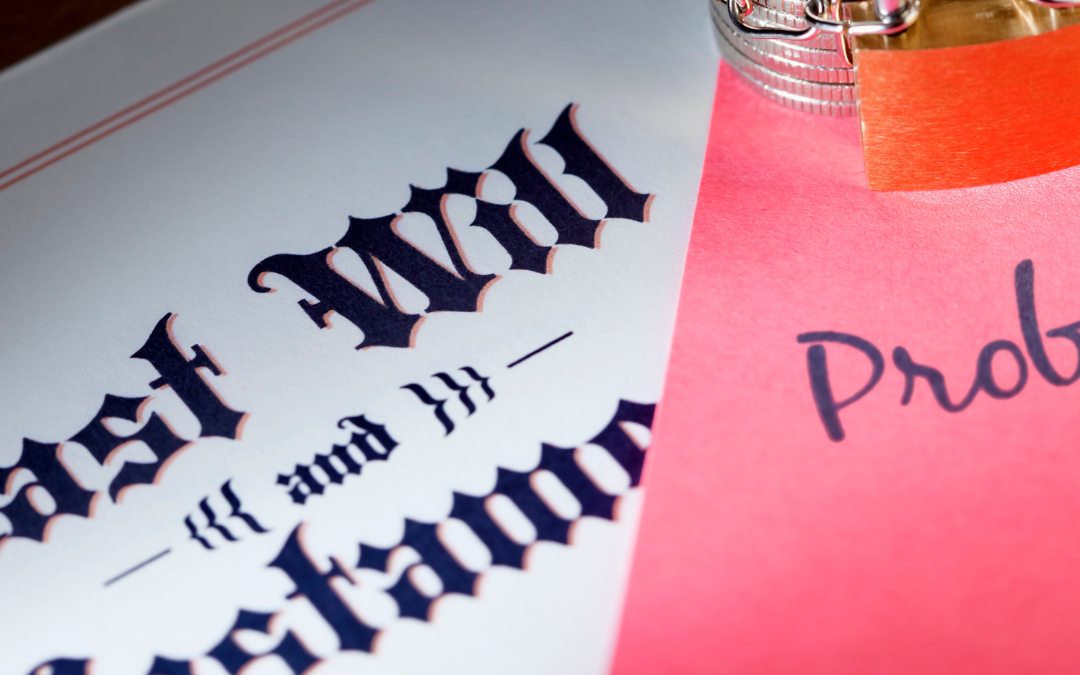What can you do to help your heirs?
Provided by Brower Financial Group
The probate process can be expensive for some estates
Settling an estate through probate can cost you both time and money. It could take up to a year for the estate to be settled, plus attorney’s fees, appraiser’s fees, and court costs may eat up as much as 5% of a decedent’s assets. Probating an estate valued at $400,000 could cost as much as $20,000.1
What can you do to help your heirs have as smooth of a transition process as possible? There are a few steps that may help you along the way:
Joint accounts
Married couples may hold property as a joint tenancy. Jointly titled property includes a right of survivorship and is not subject to probate. It simply goes to the surviving spouse when one spouse dies. Some states allow a variation called tenancy by the entirety, in which married spouses each own an undivided interest in property with the right of survivorship (they need consent from the other spouse to transfer their ownership interest in the property). A few states allow community property with right of survivorship; assets titled in this way also skip the probate process.2
However, joint accounts can still face legal challenges. A potential heir to assets in a jointly held bank account may claim that it is not a “true” joint account but a “convenience account” where a second account holder was added just for financial expediency. Also, a joint account arrangement with right of survivorship may not match what’s detailed in an estate strategy.2
POD & TOD accounts
Payable-on-death and transfer-on-death forms permit easy transfer of bank accounts and securities. If the original owner lives, the named beneficiary has no right to claim the account funds or the security. When the original owner passes away, all the named beneficiary needs to do is bring their ID and valid proof of the original owner’s death to claim the assets or securities.2
Gifts
For 2022 the IRS allows you to give up to $16,000 each to as many different people as you like before owing taxes. By doing so, you reduce the size of your taxable estate. Gifts over $16,000 may be subject to federal gift tax (which tops out at 40%) and count against the lifetime gift tax exclusion. The lifetime individual gift tax exemption is currently set at $12.04 million. For a married couple, the lifetime exemption is now $24.12 million.3
Revocable living trusts
In a sense, these estate vehicles allow people to do much of their probate while alive. The grantor—the person who establishes the trust—funds it while they’re alive with up to 100% of their assets and designating beneficiaries. A “pour-over will” may be used to add subsequently accumulated assets to the trust at your death, yet those assets “poured into” the trust at that time will still be probated.4
The trust owns assets that the grantor once did, yet the grantor can invest, spend, and manage these assets while they’re alive. When the grantor dies, the trust lives on, becoming an irrevocable trust, and its assets should be able to be distributed by a successor trustee without having to be probated. The distribution is private, as opposed to the completely public process of probate, and it can save heirs court costs and time.4
Using a trust involves a complex set of tax rules and regulations. Before moving forward with a trust, consider working with a professional familiar with the rules and regulations.
Are there assets probate doesn’t touch?
Yes, there are all kinds of non-probate assets. The common denominator of a non-probate asset is a beneficiary designation, which allows these assets to pass either to a designated beneficiary or a joint tenant, regardless of what a will states. Common assets that won’t involve probate include jointly owned assets with the right of survivorship.2
Make sure to designate/update retirement account beneficiaries
When you open a retirement savings account, you are asked to designate eventual beneficiaries. This stipulates where these assets will go when you die. A beneficiary designation commonly takes precedence over a will.2
Consider reviewing your beneficiary designations regularly to see if they need to be updated.
If you are married and have a workplace retirement plan account, your spouse is the default beneficiary of the account under federal law unless they decline in writing. Your spouse is automatically entitled to receive 50% of the account assets should you die, even if you designate another person as the account’s primary beneficiary.2
To learn more about strategies to avoid probate, consult an attorney or a financial professional with solid knowledge of the estate process.
About Brower Financial Group
Sound financial planning you can count on.
An organization is only as strong as its roots. For six generations, our families’ Florida roots have guided our approach to life and community service. As a financial partner to hundreds of families and organizations for more than 25 years, we understand what is most important to you.
Brower Financial Group is a premier financial planning firm located in Ponte Vedra Beach, FL serving all of Jacksonville, The Beaches and Ponte Vedra.
Securities offered through JW Cole Financial, Inc. (JWC), Member FINRA/SIPC Advisory Services offered through J.W. Cole Advisors, Inc. (JWCA). Brower Financial Group and JWC/JWCA are unaffiliated entities. Registered Representatives of J.W. Cole Financial, Inc. whose identities and associations with Brower Financial Group are disclosed on this site, may only conduct business with residents of the states and/or jurisdictions for which they are properly registered.
This material was prepared by MarketingPro, Inc., and does not necessarily represent the views of the presenting party, nor their affiliates. This information has been derived from sources believed to be accurate. Please note – investing involves risk, and past performance is no guarantee of future results. The publisher is not engaged in rendering legal, accounting or other professional services. If assistance is needed, the reader is advised to engage the services of a competent professional. This information should not be construed as investment, tax or legal advice and may not be relied on for the purpose of avoiding any Federal tax penalty. This is neither a solicitation nor recommendation to purchase or sell any investment or insurance product or service, and should not be relied upon as such. All indices are unmanaged and are not illustrative of any particular investment.
Citations
- NOLO.com, 2022
- Forbes.com, March 28, 2022
- IRS.gov, February 4, 2022
- SmartAsset.com, August 4, 2022


